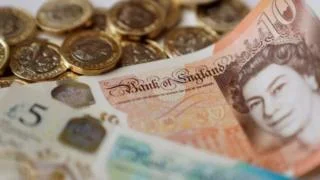The number of British households that could consider themselves as millionaires rose by nearly a third in two years, official figures show.
A total of 3.6 million households in Britain held wealth of more than £1m by June 2016, up 29% in two years, the Office for National Statistics said.
Wealth includes pension savings, investments, belongings, and property values less any outstanding mortgage.
Campaigners argue that the figures expose wealth inequality.
The median average wealth per British household, after borrowing is taken into account, was £259,400 by July 2016. This was 15% higher compared with two years earlier, the official figures show.
Spreading wealth?
The figures show the amount of wealth held by each of Britain's 26 million households as a whole, irrespective of whether there is one or several occupants.
While the wealth of those at the top end of the scale has risen, driven by the growth of private pensions and property values, those at the other end have seen a fall over the same period.
The poorest fifth of households, less likely to own a home or a private pension, saw their wealth diminish. For the bottom one in 10 households, that meant a drop, typically, of £3,000 to £32,000.
Conor D'Arcy, senior policy analyst at the Resolution Foundation, which lobbies for low-income groups, said: "Britain is very good at generating wealth, but terrible at spreading it around the country and even worse at taxing it properly. As a result, we have unacceptably high levels of wealth inequality.
"Young people in particular are feeling the effects of Britain's wealth divide. Our large millennial generation own just 2% of the nation's wealth. This stems from their struggle get on the housing ladder, boosting other's people wealth in the private rented sector,rather than build assets of their own."















No comments:
Post a Comment